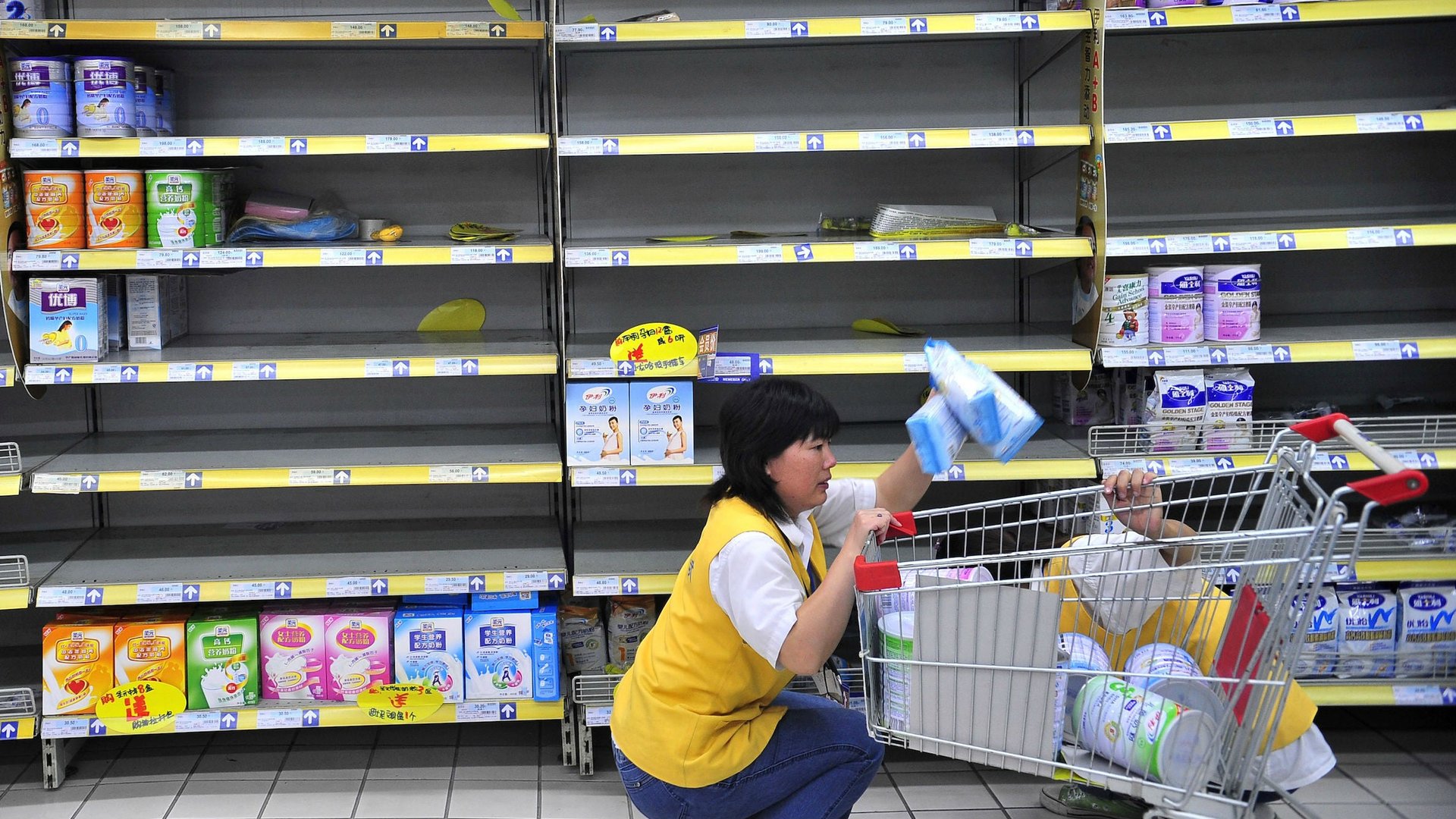Why Chinese parents are still so paranoid about made-in-China baby formula
After contaminated baby formula sickened 300,000 children and killed six in China in 2008, Chinese dairy makers have been working to remake their image, and authorities have tried to instill confidence in their commitment to food safety. But five years on, foreign dairy companies are still benefiting from mistrust of domestically made baby products—and the latest revelation that New Zealand’s dairy giant Fonterra sold contaminated milk powder in the country isn’t likely to change that. Here’s why:


After contaminated baby formula sickened 300,000 children and killed six in China in 2008, Chinese dairy makers have been working to remake their image, and authorities have tried to instill confidence in their commitment to food safety. But five years on, foreign dairy companies are still benefiting from mistrust of domestically made baby products—and the latest revelation that New Zealand’s dairy giant Fonterra sold contaminated milk powder in the country isn’t likely to change that. Here’s why:
Not enough has changed
Much of what made China’s dairy industry susceptible to corruption five years ago is still going on today. As Chinese demand for milk, now a staple of the Chinese diet, has skyrocketed, the country’s dairy sector has struggled to keep up. A complex supply chain of thousands of small-scale farmers, a shrinking supply of farmland as the country urbanizes, and inconsistent government regulation has given rise to what one analyst called “a medieval farming system serving a product to a 21st century market.”
As such, incidents of unsafe Chinese baby formula have continued since 2008, when 22 of China’s 109 dairy firms were caught adding melamine—an industrial compound reserved for plastics and fertilizer—to cover up watery formula. State-owned companies like Mengniu Dairy, which sold the tainted milk, are still operating. Mengniu was discovered to have cancer-causing toxins in its milk in 2011. Last year, another state-owned dairy maker, Yili Industry had to recall infant formula with mercury. Earlier this year, Yili was found to be selling baby formula with levels of trans-fat (paywall) higher than those deemed safe in the US.
Today, foreign brands account for half of China’s sales of infant formula and demand for foreign milk powder is so high that stocks have run dry around the world as Chinese tourists hoard the product. ”The melamine-tainted milk scandal should have been a turning point for Chinese producers. But because they were protected by the government, they missed the opportunity,” wrote (link in Chinese) Chinese journalist Qi Yue in the Economic Observer. (Here’s a translation.)
A bad reputation is hard to shake
Chinese authorities and diary companies have tried to shake their tarnished image. Authorities executed two people involved in milk tainting and jailed 19 others. Dairy producers are now required to have control of 70% or more of their milk supply. (Some say the measure isn’t strictly enforced.) More Chinese dairy companies are sourcing from their own farms, forming tie-ups with foreign companies, and testing more rigorously, Yang Dali, who teaches Chinese politics at the University of Chicago, tells Quartz.
But a deep-seated lack of public trust remains. Chinese state media have been quick to seize on Fonterra’s problems as evidence that foreign brands are no more reliable. Chinese bloggers have been just as quick to point out that Fonterra was willing to admit its mistake, something Chinese firms took a long time to do in 2008.
Moreover, the fact that many urban couples have only one child means parents are almost always willing to pay a premium for foreign brands. Yang says, “If I’m a parent I’d say, ‘Why bother?’ The quality of the Chinese product may be good but the problem is, how would I really know?'”